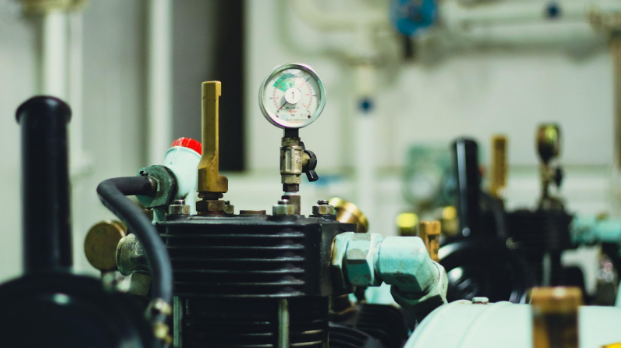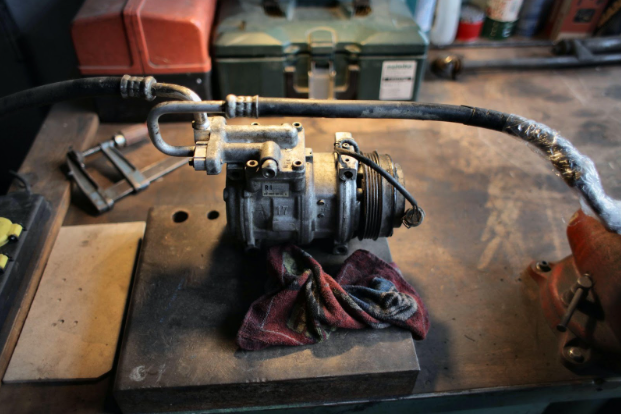What Makes Oil Free Screw Compressors A Cut Above The Rest?

Thinking about buying a new compressor for your DIY projects? Keep reading why oil free screw compressors are the best!
 Photos By: Stock Images
Photos By: Stock Images
There is either no mechanical contact within the compression chamber of oil-free air compressors or other materials are used to protect the mechanism in place of lubrication. Oil-free air compressors are more environmentally friendly.
Most oil-free compressors use water or Teflon to keep the mechanism functioning smoothly. Oil contamination of the compressed air is avoided by using adequate sealing, since all bearing and gear lubrication occurs outside the compression chamber. The end result is air that is completely devoid of oil. Certain oil-free designs have done away with metal-on-metal contact inside the compression chamber, rendering oil and synthetic lubricants superfluous.
Condensate with oil in it doesn’t need collection or disposal
Due to the fact that they aren’t screening oil, downstream filters last longer between servicing.
As there is no need to raise force, energy expenditures are reduced; in fact, certain fluid-flooded units may experience a pressure reduction downstream as a result of filtering. You won’t have to constantly top up your compressor’s oil, which means you’ll save money. These units typically unload in under two seconds after receiving the unload instruction and use just 18% of their rated horsepower when empty.
The money you’d save is really enticing. Oil-less compressors may be useful, but first you must learn how they operate, how they stack up against competing models, and what kinds of settings are ideal for them to be put to use in.
Class-Zero Air Quality and Oil-Free Compressors
When referring to the quality of compressed air, the terms “oil-free” and “technically oil-free” are often used. In the end, the international standards established by ISO 9000 are worldwide terms related to the rankings of air compressors.
ISO Class 0 through Class 5 are used to categorize the quality of the compressed air produced by various models of air compressors. Using class zero air, the purest kind of air available, is the safest option for any task that requires the greatest level of cleanliness.
Compressors that don’t use oil are guaranteed to be ISO Class Zero compliant. They produce clean, oil-free air for use in critical environments. Technically oil-free compressors are classified as ISO Class 1. Due to the fact that they are oil-lubricated, these compressors are susceptible to contamination. In order to prevent oil particles from being compressed along with everything else, special filters are used. There is a possibility of oil contamination in the compressed air because of the design of these air compressors.

The Oil-Free vs. Oil-Injected Debate
Whether a certain brand or model of air compressor is ideal for your business depends on the tasks you want to do there. Compressed air that is free of oil is essential for many uses since even a small amount of oil may destroy expensive equipment or lead to product deterioration and recalls. With these compressors, you can be certain that your operations will always adhere to the strictest air quality regulations. On the other hand, oil-injected compressors are often built to survive longer than their oil-free counterparts.
In deciding between oil-free and oil-injected air compressors, the following factors may be decisive:
- There is no chance of oil contamination in your final product or process because of the superior air quality provided by oil-free compressors.
- In general, oil-injected compressors are more long-lasting, but they also tend to be noisier than their oil-free counterparts.
- Oil-free compressors reduce leakage and energy consumption to save maintenance and utility expenses.
- Reducing the presence of oil in the air has positive effects on the environment.
If the aforementioned benefits to efficiency and safety can be sacrificed in a given application, an oil-injected compressor may be the most cost-effective choice. Yet, oil-free compressors from https://www.aerzen.com/oil-free-screw-compressors.html are necessary in settings where the potential for oil pollution is too great, such as in the food processing and medical industries.
Inhaling Air
Oil-free air compressors begin operation by drawing in clean outside air via an unloader valve and filtering it in the intake. Click here for more on unloader valves. Your compressor and its inner workings will be protected to some degree by the filter. These filters usually have a fine enough mesh to prevent particles as tiny as dust and dirt from passing through.
While the compressor is in the “laden” position, the unloader valve is open to allow air to be pumped into the chamber. When the valve is shut, the compressor is in an “unloaded” state and may operate normally. In most cases, your compressor won’t be able to take in fresh air while it’s operating and actively supplying compressed air. When the unloader valve is open and the compressor is turned on, the air is initially drawn into the low-pressure compression element.






